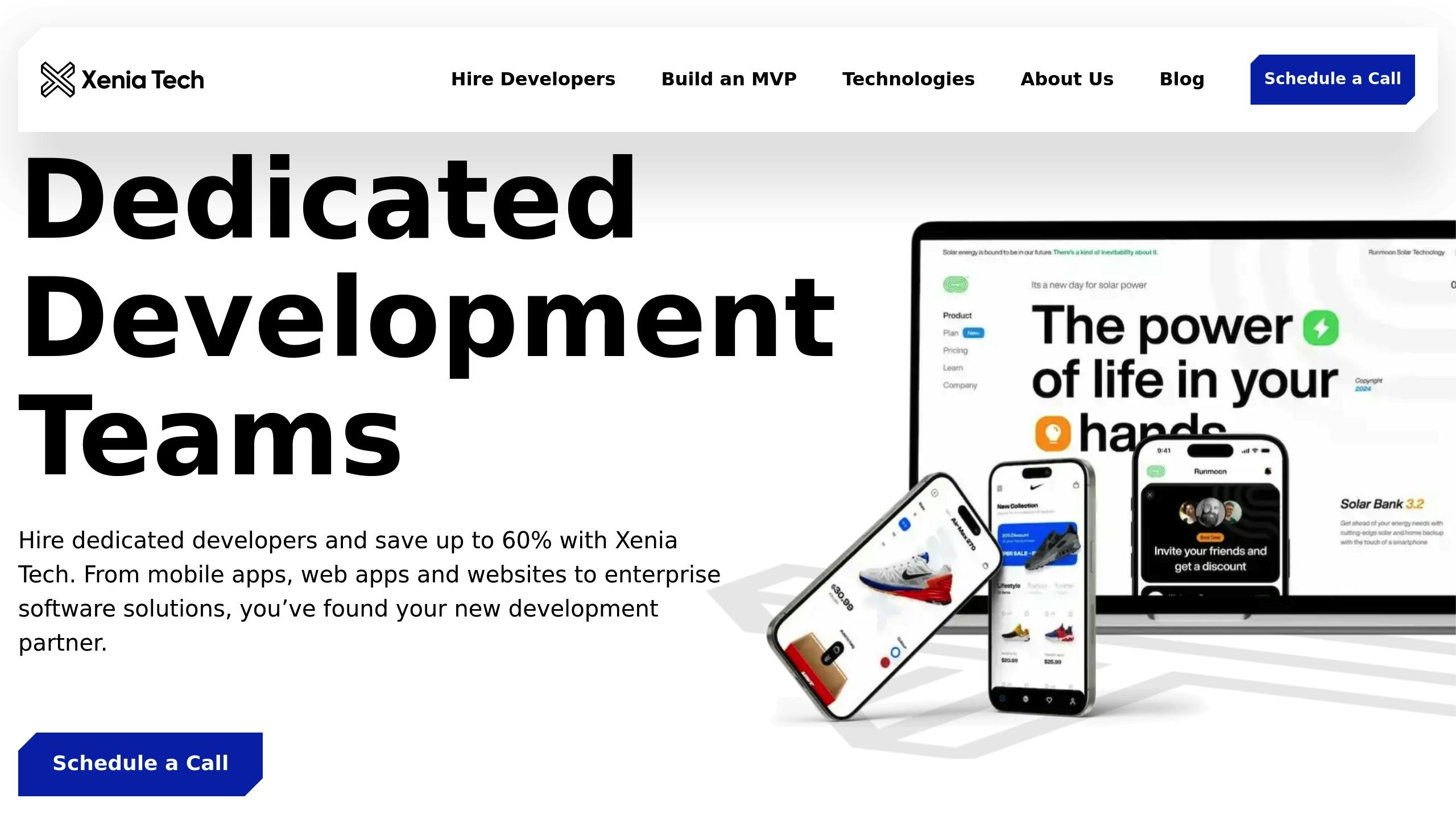AI is changing how businesses handle marketing compliance, offering faster, more accurate ways to meet regulations.
Here’s what you need to know:
- Key Features:
- Automated content checks for regulations, privacy policies, and disclosures.
- Real-time monitoring with alerts and campaign pausing.
- Automatic updates for changing regulations.
- Data privacy management (e.g., GDPR, CCPA compliance).
- Audit trails and reporting tools.
- Smart learning to predict and adapt to risks.
- Xenia Tech’s Services:
- Customizable settings for industry and regional rules.
- Centralized dashboard for compliance performance.
- Integration with existing marketing systems.
- Pros & Cons:
- Benefits: Speed, accuracy, scalability, and cost savings.
- Challenges: Setup time, learning curves, and human oversight needs.
AI tools reduce manual work, flag risks, and adapt to changing laws. However, human expertise is still vital for complex decisions and maintaining brand tone. Start small, focus on data quality, and train your team for the best results.
Automating Marketing Compliance: Balancing Speed and …
1. Standard AI Compliance Features
AI-driven compliance tools help businesses navigate regulatory requirements while managing the complexities of digital marketing.
Automated Content Review
Artificial Intelligent systems analyze text, images, and videos to ensure adherence to key requirements, such as:
- Proper placement of disclosures
- Compliance with privacy policies
- Use of industry-specific regulatory language
- Accessibility standards
- Consent mechanisms for data collection
Real-time Monitoring and Alerts
These tools keep a constant eye on campaigns by:
- Tracking content across social media, email, and websites
- Sending instant alerts for potential violations
- Assigning risk scores to flagged content
- Automatically pausing campaigns when critical issues arise
Regulatory Update Integration
Artificial Intelligent systems adjust compliance rules, screening processes, and documentation automatically to reflect changes in regulations across different regions.
Data Privacy Management
Manages data collection, verifies consent, tracks retention policies, and ensures compliance with laws like GDPR and CCPA.
Documentation and Reporting
Generates automated audit trails, detailed reports on issues, and tracks resolutions. Performance analytics are also included to provide actionable insights.
Smart Learning Capabilities
Uses pattern recognition to adapt to new marketing practices, incorporates feedback from compliance officers, and analyzes historical data to predict potential risks.
Together, these features provide businesses with the tools needed to manage compliance effectively across all marketing platforms.
sbb-itb-7432820
2. Xenia Tech‘s Marketing Compliance Services

Xenia takes marketing compliance to the next level by embedding AI into existing workflows. Our services are designed to monitor compliance without compromising the effectiveness of marketing campaigns.
We use AI to instantly analyze digital marketing content and flag potential compliance issues. This allows teams to quickly identify and address risks, keeping campaigns on track while staying within regulatory boundaries.
Recognizing that industries and regions have different standards, our team customizable compliance settings. Clients can adjust parameters to meet their specific sector and regional requirements, ensuring a more precise approach.
A centralized dashboard provides a clear overview of compliance performance. With access to historical data and simplified audit processes, the system reduces the need for time-consuming manual reviews. This streamlined approach integrates smoothly with existing systems.
We can build the tools with seamless integration. We connect effortlessly with content management systems, marketing automation platforms, and analytics tools, ensuring they fit naturally into your current digital setup without disrupting workflows.
Benefits and Limitations
When considering AI-driven marketing compliance tools, it’s important to weigh their strengths alongside potential challenges.
| Aspect | Benefits | Limitations |
|---|---|---|
| Speed & Efficiency | • Monitors compliance in real time • Automates content checks • Detects risks instantly |
• Requires time for initial setup • Teams may face a learning curve • Needs regular updates |
| Accuracy | • Applies rules consistently • Recognizes patterns effectively • Supports multiple languages |
• May overlook context-specific details • Human review is still necessary • Risk of false positives |
| Cost Management | • Cuts down on manual review hours • Reduces compliance violations • Simplifies workflows |
• High upfront implementation costs • Ongoing maintenance expenses • Requires staff training |
| Scalability | • Manages large volumes of content • Monitors across multiple channels • Covers global regulations |
• Customization can be resource-heavy • Integration can be complex • Performance depends on data quality |
The table highlights the main advantages and challenges of AI compliance tools. Xenia Tech’s solutions stand out by effectively addressing these common pain points. Our service is particularly useful for organizations navigating complex regulatory landscapes across multiple regions.
Xenia Tech’s AI adapts quickly to new industry regulations, allowing businesses to stay compliant without sacrificing marketing agility. This adaptability helps companies maintain smooth operations while meeting legal requirements.
Despite the strengths, AI systems aren’t flawless. Human involvement remains essential for:
- Interpreting complex or nuanced regulatory updates
- Managing unusual or one-off cases
- Making judgment calls in borderline situations
- Preserving brand voice and tone
Key Findings
Businesses using AI for marketing compliance are uncovering impactful insights.
Combining AI’s ability to quickly analyze content with human expertise for interpreting complex regulations and cultural subtleties has proven effective. This partnership ensures accurate decision-making and compliance.
Organizations using AI compliance tools have reported benefits like reduced manual review workloads, fewer compliance issues, and quicker campaign turnarounds. While results vary, these improvements highlight the importance of following effective practices.
To achieve the best outcomes, consider these practices:
- Start Small, Scale Smart: Begin with a pilot program on one channel for three to six months. This helps refine processes before rolling out on a larger scale.
- Focus on Data Quality: Regularly audit training data and compliance rules to keep AI tools performing at their best.
- Train Your Team: Ensure teams understand how AI tools work, updated workflows, risk assessments, and how to handle exceptions.
In addition to these steps, risk mitigation plays a key role. Set confidence thresholds, conduct regular audits, enforce data encryption, and review system performance periodically to maintain compliance.
Ultimately, successfully integrating AI in marketing compliance requires balancing automation with human oversight. This approach ensures compliance while improving efficiency.




